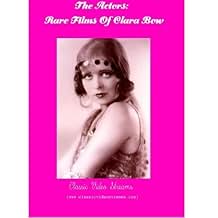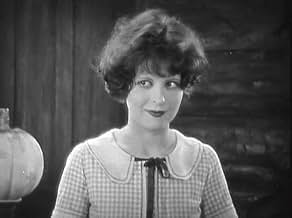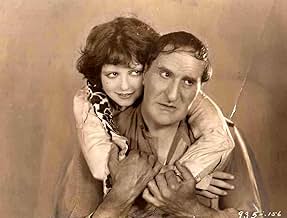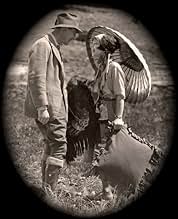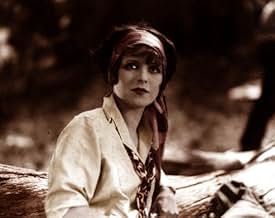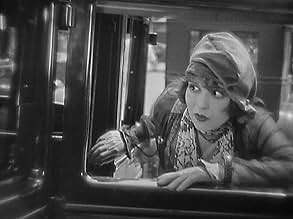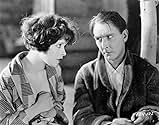A sexy young manicurist living with her older backwoodsman husband in a small Canadian town finds herself attracted to a young, rich and famous divorce lawyer who comes to town on vacation.A sexy young manicurist living with her older backwoodsman husband in a small Canadian town finds herself attracted to a young, rich and famous divorce lawyer who comes to town on vacation.A sexy young manicurist living with her older backwoodsman husband in a small Canadian town finds herself attracted to a young, rich and famous divorce lawyer who comes to town on vacation.
- Awards
- 2 wins total
Chief John Big Tree
- Indian
- (uncredited)
Scotty Mattraw
- Man gets haircut
- (uncredited)
Rolfe Sedan
- Barber
- (uncredited)
Featured reviews
I noticed that some folks (as well as the accompanying DVD notes) describe this as Clara Bow's best film. Well, it was cute and worth seeing but I still don't think it comes close to the quality and entertainment value of "Wings"--a film she made the following year.
The title clearly has a double meaning. First, it's set in the town of Mantrap in rural Canada. Second, Clara is clearly a mantrap--a woman who is so flirtatious that she can't seem to help attracting men.
The film begins with a man leaving Mantrap--he wants to visit the big city and perhaps meet a woman. He meets one--Clara--and soon they get married and move back to his tiny village. At the same time, a burnt out divorce lawyer leaves the big city to get away from it all. When he meets up with Clara's husband, they soon become friends. Unfortunately, Clara just can't help herself and she soon starts in on him--and it's obvious she wants him. What's to happen next? See this cute little film to see for yourself.
I noticed that another reviewer felt that the plot was decent but the film really was improved by Bow's performance as a lovable flirt. I would agree--it did make the film more entertaining. But, at its heart, it's still just a slightly above average film but a good feature role by this lovely actress.
The title clearly has a double meaning. First, it's set in the town of Mantrap in rural Canada. Second, Clara is clearly a mantrap--a woman who is so flirtatious that she can't seem to help attracting men.
The film begins with a man leaving Mantrap--he wants to visit the big city and perhaps meet a woman. He meets one--Clara--and soon they get married and move back to his tiny village. At the same time, a burnt out divorce lawyer leaves the big city to get away from it all. When he meets up with Clara's husband, they soon become friends. Unfortunately, Clara just can't help herself and she soon starts in on him--and it's obvious she wants him. What's to happen next? See this cute little film to see for yourself.
I noticed that another reviewer felt that the plot was decent but the film really was improved by Bow's performance as a lovable flirt. I would agree--it did make the film more entertaining. But, at its heart, it's still just a slightly above average film but a good feature role by this lovely actress.
Should have been the title of this take on 'Mantrap', the rather unsuccessful novel by Sinclair Lewis. After having seen the picture, Lewis apparently claimed that the film did not have much to do with the book, but pleasing it certainly is. That's mainly because of the presence of Clara Bow, who is simply irrepressible: She just needs to hint at flirting and men fall for her left, right and centre. That's not to say the other actors are no good. It is nice to see Eugene Pallette, already displaying his typical mannerisms (though less weighty than in the 1930s), and Ernest Torrence is doing well, too. Percy Marmont came initially across as rather too misogynist for my taste, but he improves in the course of the film. Still, having watched it I was asking myself 'so what?'. In sum: nice enough but far from great.
Of all those long-gone silent movie stars, Clara Bow is one of the few whose name is widely remembered. She is seen as epitomising the Jazz-age floozy; fun-loving and promiscuous in that brief period when these things weren't frowned upon in the movies. Actually Bow played a lot of relatively tame leading lady roles as well – it was her offscreen antics that garnered her reputation. But once in a while she played a role that lived up to the stereotype, as in the bluntly-titled Mantrap.
Mantrap shows Clara at her most lively, playing her effortless flirtatiousness to the hilt. As this is also a comedy she gets to exaggerate a little, proving to be very good at this – humorous, but not overly theatrical. Playing opposite her is the Ernest Torrence, who because of his size and looks was generally cast as villains. He does well against type here though, showing a kind of awkward sensitivity towards Bow. Also to be seen here is Eugene Palette, his tubby sidekick persona just beginning to emerge (although it wouldn't really solidify until the coming of sound added his voice to the mix).
The director was Victor Fleming, one of many action-loving young men working in Hollywood at the time. For Fleming, the image really has to keep moving, and he makes the action snappy with lots of tracking shots and pans round the room. Often this attention-grabbing style is very much functional. For example, he gives Percy Marmont ("Ralph") a very memorable introduction with his face suddenly revealed. This is necessary because he then disappears from the narrative for a while, only to re-emerge as a main character. He saves an absolutely brilliant entrance for Bow herself, having her appear from behind a curtain in the background and, as if incidentally, has her saunter forward until she is in close-up.
Despite what the title implies, Mantrap is a rather playful affair that shows the men in Clara's life as becoming exasperated rather than ensnared by her. It's remarkably even-handed though, and she gets to assert her independence in style. If you want to see the real vision of a 1920s femme fatale, you have to look at the dubiously moral pictures of Cecil B. DeMille. But coming at it from this different angle, Mantrap is more in the way of good-natured fun.
Mantrap shows Clara at her most lively, playing her effortless flirtatiousness to the hilt. As this is also a comedy she gets to exaggerate a little, proving to be very good at this – humorous, but not overly theatrical. Playing opposite her is the Ernest Torrence, who because of his size and looks was generally cast as villains. He does well against type here though, showing a kind of awkward sensitivity towards Bow. Also to be seen here is Eugene Palette, his tubby sidekick persona just beginning to emerge (although it wouldn't really solidify until the coming of sound added his voice to the mix).
The director was Victor Fleming, one of many action-loving young men working in Hollywood at the time. For Fleming, the image really has to keep moving, and he makes the action snappy with lots of tracking shots and pans round the room. Often this attention-grabbing style is very much functional. For example, he gives Percy Marmont ("Ralph") a very memorable introduction with his face suddenly revealed. This is necessary because he then disappears from the narrative for a while, only to re-emerge as a main character. He saves an absolutely brilliant entrance for Bow herself, having her appear from behind a curtain in the background and, as if incidentally, has her saunter forward until she is in close-up.
Despite what the title implies, Mantrap is a rather playful affair that shows the men in Clara's life as becoming exasperated rather than ensnared by her. It's remarkably even-handed though, and she gets to assert her independence in style. If you want to see the real vision of a 1920s femme fatale, you have to look at the dubiously moral pictures of Cecil B. DeMille. But coming at it from this different angle, Mantrap is more in the way of good-natured fun.
I'd been wanting to see Mantrap for years and finally got the chance to see it recently. What a rare treat -- being able to see Clara Bow in one of her early hits, aided by A-list talent such as director Victor Fleming and cinematographer James Wong Howe, with a snappy script based on original material by Sinclair Lewis. If you're a fan of Miss Bow, it's worth it to seek out this title -- she really shines here! You will not be disappointed.
From the moment she enters the scene as Alverna, a bubbly doll of a manicurist with a severe flirting problem, she steals every scene she's in. Alverna falls for Joe, a simple backwoods "he-man" who quickly makes her his bride and snatches her away to his rustic cabin up north. Take Alverna's boredom and flirting addiction, add in Ralph, a New York divorce lawyer running away from city women ... and you can see where the story is headed. But it's oh so much fun to watch it unfold.
Clara's manic energy makes the movie (watch the scene in which she feeds Joe and Ralph chocolates and bops around the room like a sexy little Muppet), but the dialogue on the title cards keep the comedic energy up as well with clever quips. When Joe threatens to send Alvy away to his aunt in Minneapolis, she retorts: "Minneapple - sauce!" A great slice of mid-1920s vernacular, and this movie's full of them.
Unfortunately, B.P. Schulberg at Paramount threw Clara into practically any picture that came along, which means she racked up dozens of roles in mediocre, forgettable titles in her day. (The reason is clear: Clara had such -- well, "it" -- that she would have been watchable in a film about drying paint. So why seek out top material when your star makes you money even when the material is crap?) Mantrap is the kind of vehicle Clara should have always been given. An adorable little film, a wonderful showcase for Clara, and a silent I highly recommend.
From the moment she enters the scene as Alverna, a bubbly doll of a manicurist with a severe flirting problem, she steals every scene she's in. Alverna falls for Joe, a simple backwoods "he-man" who quickly makes her his bride and snatches her away to his rustic cabin up north. Take Alverna's boredom and flirting addiction, add in Ralph, a New York divorce lawyer running away from city women ... and you can see where the story is headed. But it's oh so much fun to watch it unfold.
Clara's manic energy makes the movie (watch the scene in which she feeds Joe and Ralph chocolates and bops around the room like a sexy little Muppet), but the dialogue on the title cards keep the comedic energy up as well with clever quips. When Joe threatens to send Alvy away to his aunt in Minneapolis, she retorts: "Minneapple - sauce!" A great slice of mid-1920s vernacular, and this movie's full of them.
Unfortunately, B.P. Schulberg at Paramount threw Clara into practically any picture that came along, which means she racked up dozens of roles in mediocre, forgettable titles in her day. (The reason is clear: Clara had such -- well, "it" -- that she would have been watchable in a film about drying paint. So why seek out top material when your star makes you money even when the material is crap?) Mantrap is the kind of vehicle Clara should have always been given. An adorable little film, a wonderful showcase for Clara, and a silent I highly recommend.
this is one of clara bow's best movies. she plays a girl from the big city of minneapolis who marries a man from a small canadian town. they move back to canada in a town called "mantrap," where clara proceeds to flirt with just about every man she meets. the story is rather good for a silent film, but it is clara's personality and stunning beauty that are the main assets in this film. if you are a fan of clara bow, this is definitely a film to check out ( if ya can find it.)
Did you know
- TriviaThis was the first time Victor Fleming directed Clara Bow, and apparently the experience was a pleasant one--he began a long-term personal relationship with her.
- GoofsIn the montage of Joe's trip from Mantrap in Canada to Minneapolis, palm trees can be seen behind some of the houses.
- Quotes
Joe Easter: Well, that sort of upsets my plans. I'd figured on sendin' her to my aunt in Minneapolis...
Alverna: Minneapple sauce!
- ConnectionsFeatured in Hollywood (1980)
Details
- Runtime
- 1h 11m(71 min)
- Color
- Sound mix
- Aspect ratio
- 1.33 : 1
Contribute to this page
Suggest an edit or add missing content

